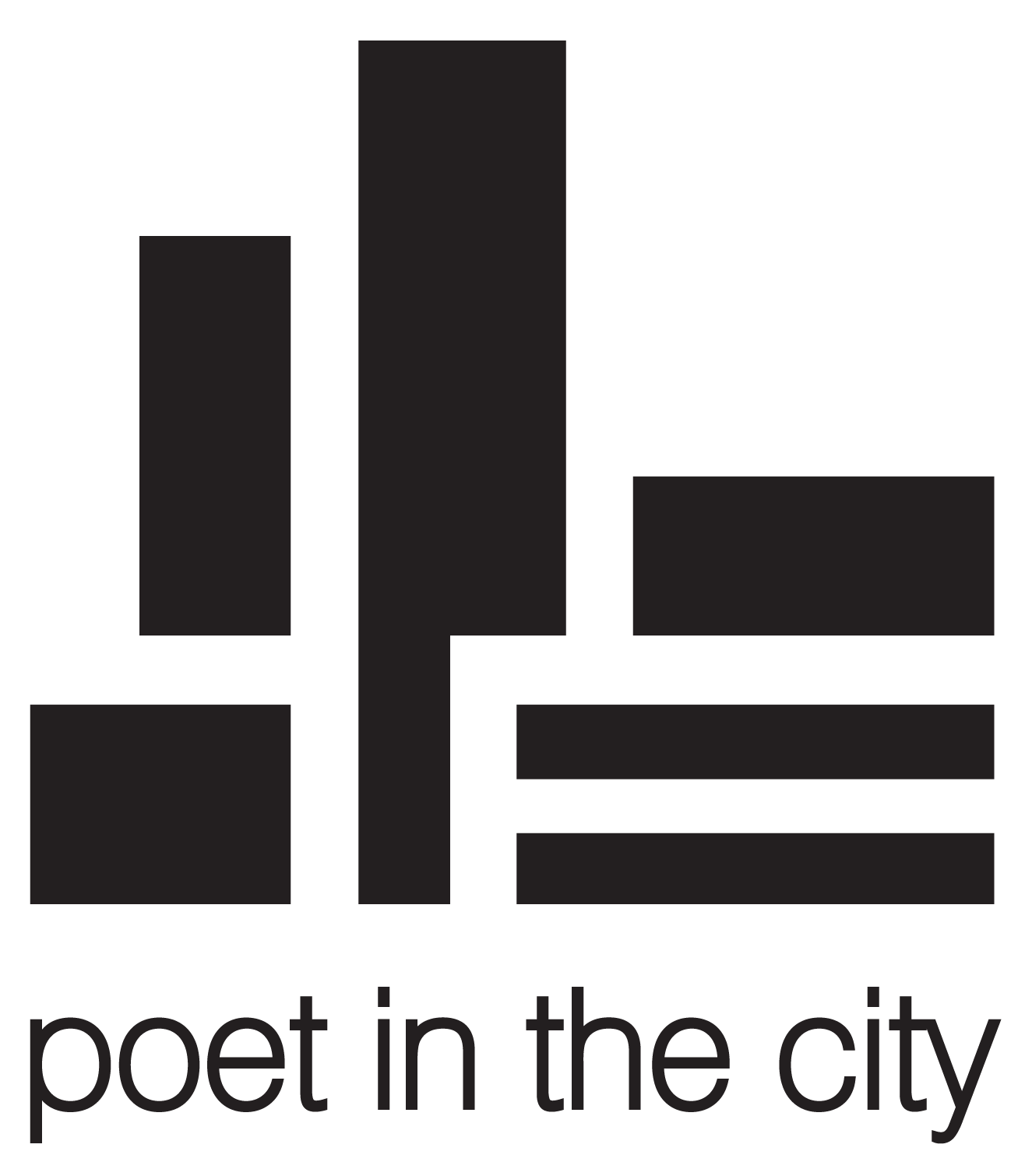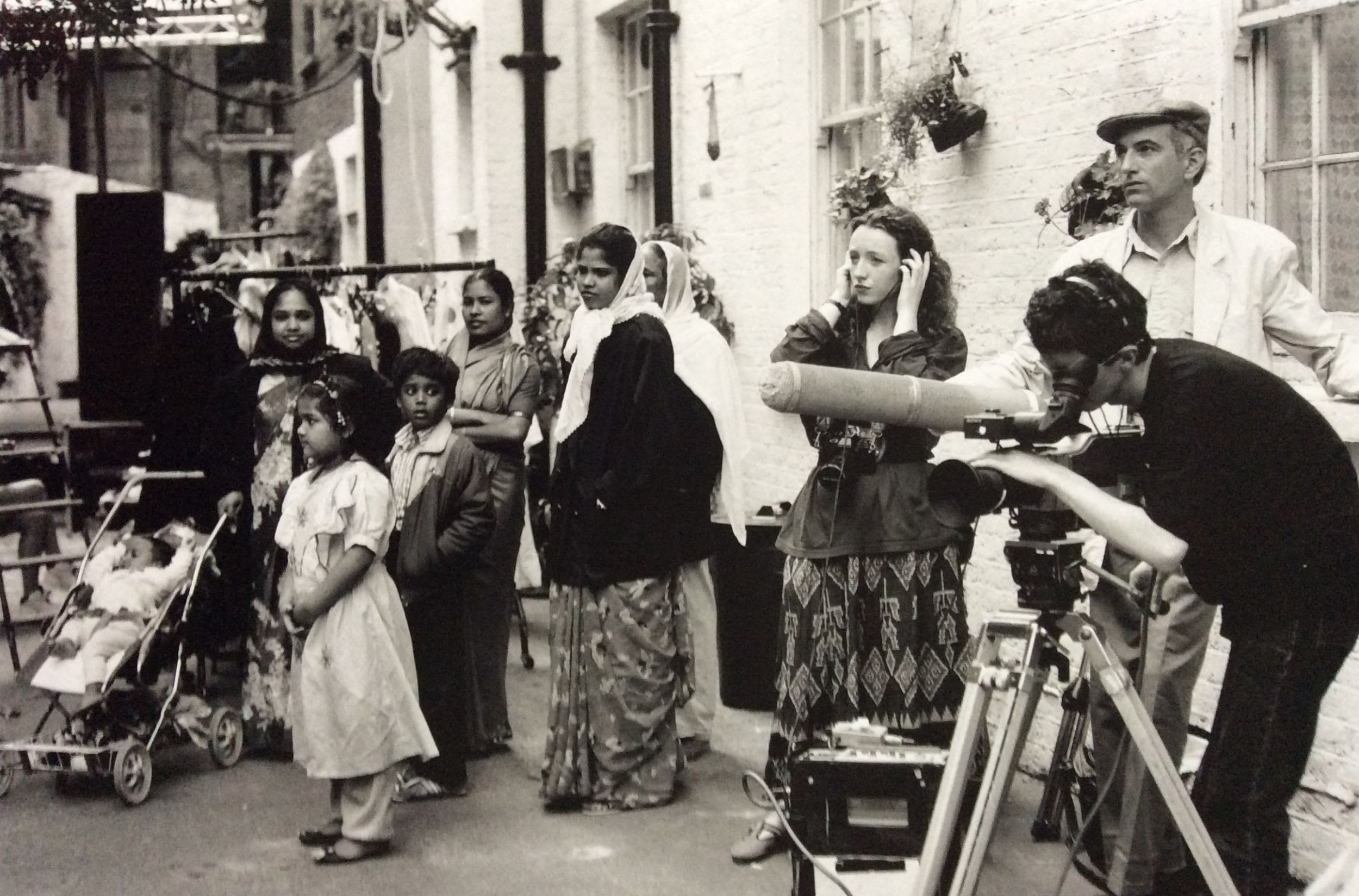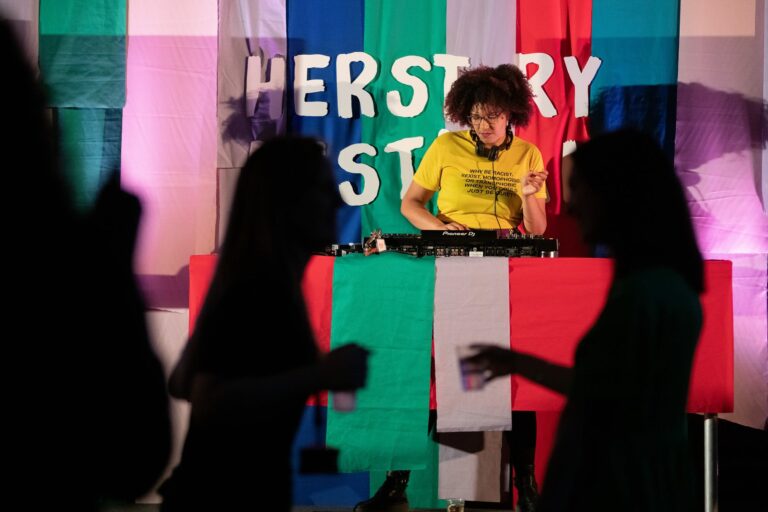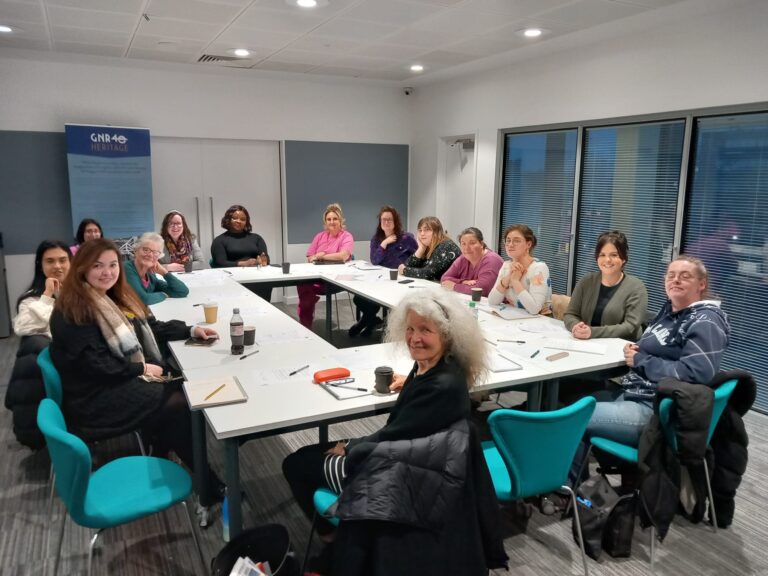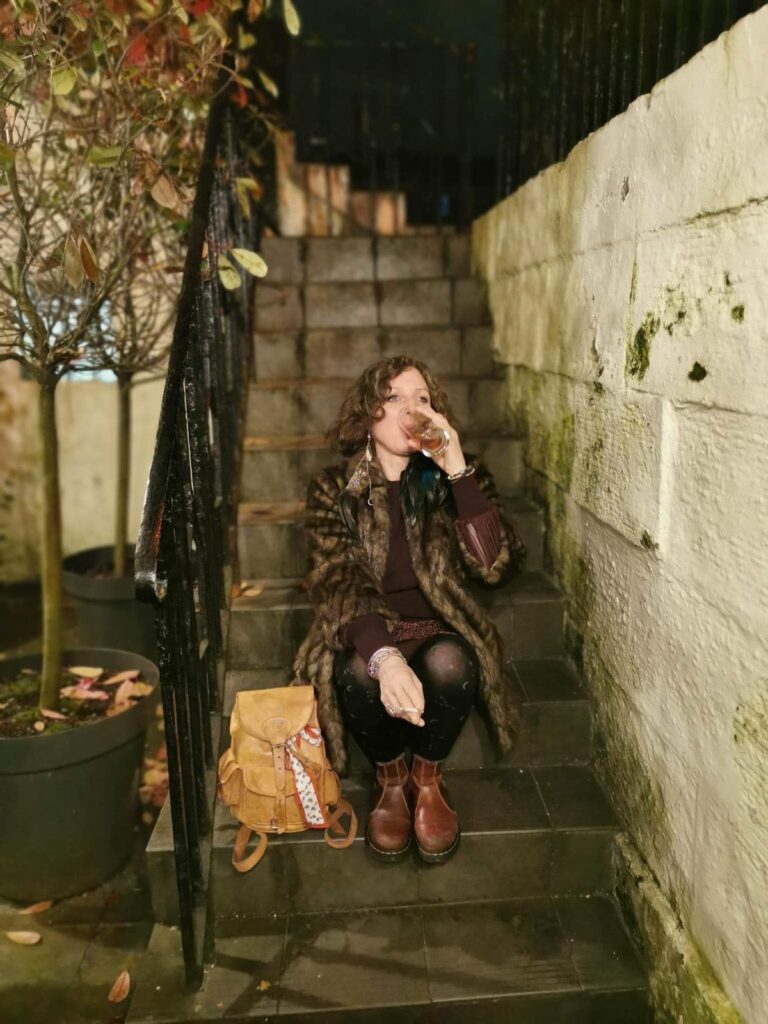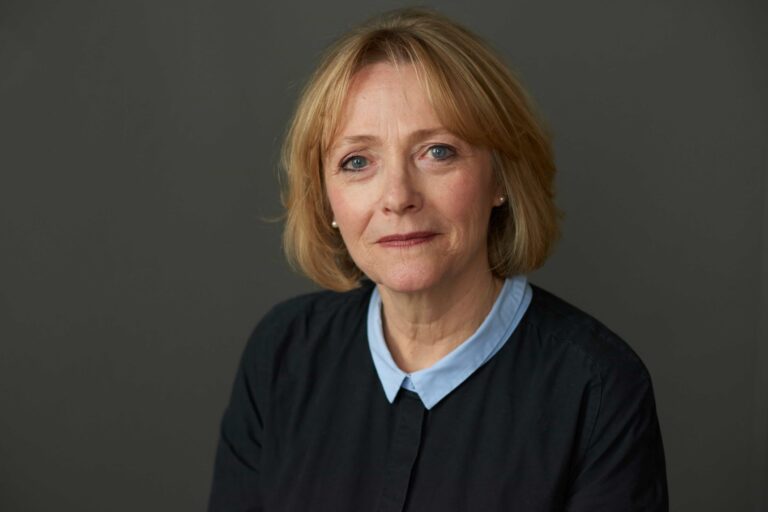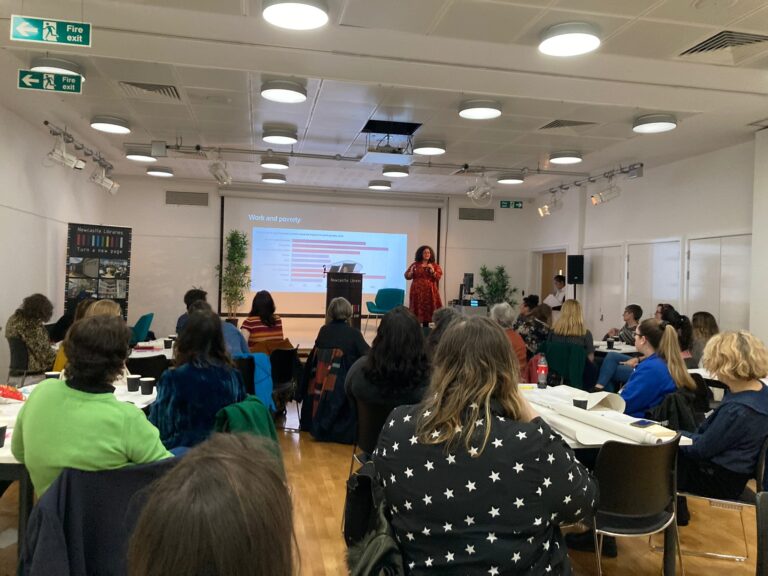We Must Become More Than Strangers: A Poetic Manifesto For Engaging With Communities
In the final months of 2021, we brought together poets we’d commissioned over the past several years to explore the process and complexities of capturing other people’s experiences and stories in poems. Inspired by these discussions led by Dr Karen Simecek as part of her research at the University of Warwick on the ethics of voice, Selina Nwulu created a poetic manifesto for working with communities and caring well for their stories.
We must become more than strangers:
A poetic manifesto for engaging with communities
This manifesto is a curated document based on the thoughts and experiences of a group of poets, who have been commissioned by Poet in the City to work on a variety of poetry projects working in community settings. The manifesto doesn’t seek to agree with itself nor offer one sole approach, but rather highlight some key principles and considerations when writing poetry with and for different communities.
The poet Selina Nwulu listened to the commissioned poets and consolidated the ideas discussed in this document. The poets we spoke to were Joshua Idehen, Vahni Anthony Capildeo, Sophie Herxheimer, Eeshita Azad, Shamim Azad, Fathima Zahra, Keisha Thompson, Clare Pollard and Rachel Bower.
1. Working in community begins with interrogation –
It could be anthemic. It could be critical. An attempt to unify or show differences or start conversation. I think the possibilities are endless
I resist and reject terms like community poem…a community is very much a living thing, a lived experience and poems are meant to encapsulate what it’s like to be alive, today, right now.
Communities can be messy, historical and transient, sometimes overlooked and ever changing. No one has the right to own or create homogenous narratives over what a community should look like.
It is the poet’s role to interrogate the labels behind the communities they are writing for, and understand both possibilities and limitations of creating work in their honour.
2. A poem is merely a puzzle piece in a wider mosaic –
I’d like to queer and decolonize the idea of unique voice linked to embodiment in any straightforward or consistent way.
A single narrative risks oversimplification, fooling us into thinking the complex, ever shifting entities that communities embody can ever be fully understood. Whether writing to, for, or with a community, a poem should be understood as a single puzzle piece in a mosaic – a fragment from a moment in time.
A range of different voices, writing from distinct and overlapping perspectives over time can begin to offer a fuller picture.
3. The poet is also an archive –
The poet both acts as a mirror and conduit for the community, but it is both shared and individual
[It] depends on the poet and where they come from, whether they identify strongly with a community and feel a connection with it. My generation can’t get rid of this baggage – even if you are not told to represent your community you always feel that you are.
No poet is a blank slate, each will bring their own cultural experiences, preferences and emotional compasses to the room, as well as their authority a professional writer. Whether new or familiar with a community, a poet must recognise their own privilege and point of entry into the work, understanding the final piece as an intersection of their own voice and imagination and the stories of communities they are working with.
It’s always going to be random, the bits you hear and the bits you collect, because you’re a person too.
4. Naming the elephant in the room –
The objective of the commissioner needs to be taken into account but it cannot sway the ultimate artistic vision of the artist.
I’ve got my own poetic appetite; I use poetry for me in my artwork in a way that I like to. But when I’m doing these kinds of things [commissioned work], I see it very much as a skill set and I can be a conduit.
We must name the discomfort that lives between the ‘pure’ connotations of creating community poetry, and the commercial intentions an organisation might have in commissioning a ‘community poem’.
Commissioners need to clearly set out their expectations and find balance between fulfilling their objectives and giving space for poetic curiosity and freedom of thought. If there is a real appreciation of poetry as an art form, there must also be an understanding of where and when more corporate agendas and ways of working are not compatible with poetry.
For me, the one single thing that a commissioning body should do is to light the blue touch paper and stand well back.
5. A community is not a treasure trove waiting to be mined –
[the term community poem] evokes imagery of a native informant going into the community, extracting the gold and coming back out to interpret to ‘The Man’. I understand that not everyone would see it this way and that it does hint at colonial imagery…
It would be a shame if community poems required communities to itemise and list what made them special and different… It should not limit a community into rehearsing loss or sociological characteristics.
It is not a community’s job to perform grief and offer narratives that take the well-trodden path. Both poet and commissioner should see themselves as guests – never taking too much from a community, and never without asking.
The community must know the whole shape of a project and its intentions, and their work should be credited as appropriate between the poet and community members.
To create work with the community is a reciprocal act, and so both poet and commissioner should allow themselves be changed by the stories they find, as much as any community member offering them.
6. We must become more than strangers –
There’s that idea that you don’t invite strangers to a party. You wouldn’t expect them to come. But there’s never enough funding to facilitate that ‘getting to know you’ phase [when connecting with a community], to get a rapport, to establish a relationship.
Whether working with a community over a long or fleeting period of time, the quality of the connection between the poet and community feeds the work.
People can be guarded and nervous, changeable from one day to another. We must create space for them to want to offer something of themselves to a poet, to become more than strangers. Creative collaboration is an exercise in vulnerability; joy and pain are not always instantly given, trust needs to be earned and it takes time and discernment to understand how best to relay the spirit of a community.
7. Stories cannot be owned –
All poets can write, acknowledging and honouring many voices, without laying claim to them.
Beyond the parameters of any commission or authored work, a community’s words and experiences can never be owned. Stories are transient and intangible; when writing with and on behalf of a community, it is poet’s job to listen and capture any part of a story’s wisdom. To hold up the truth as a mirror image, so that a community might recognise themselves through its message.
What are we making here? How can people respond? Will they enjoy this? Will they find something they can recognise? In which case, great. Because that does make community, that does make people nod and think I’m part of this, how magic
